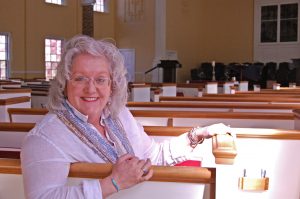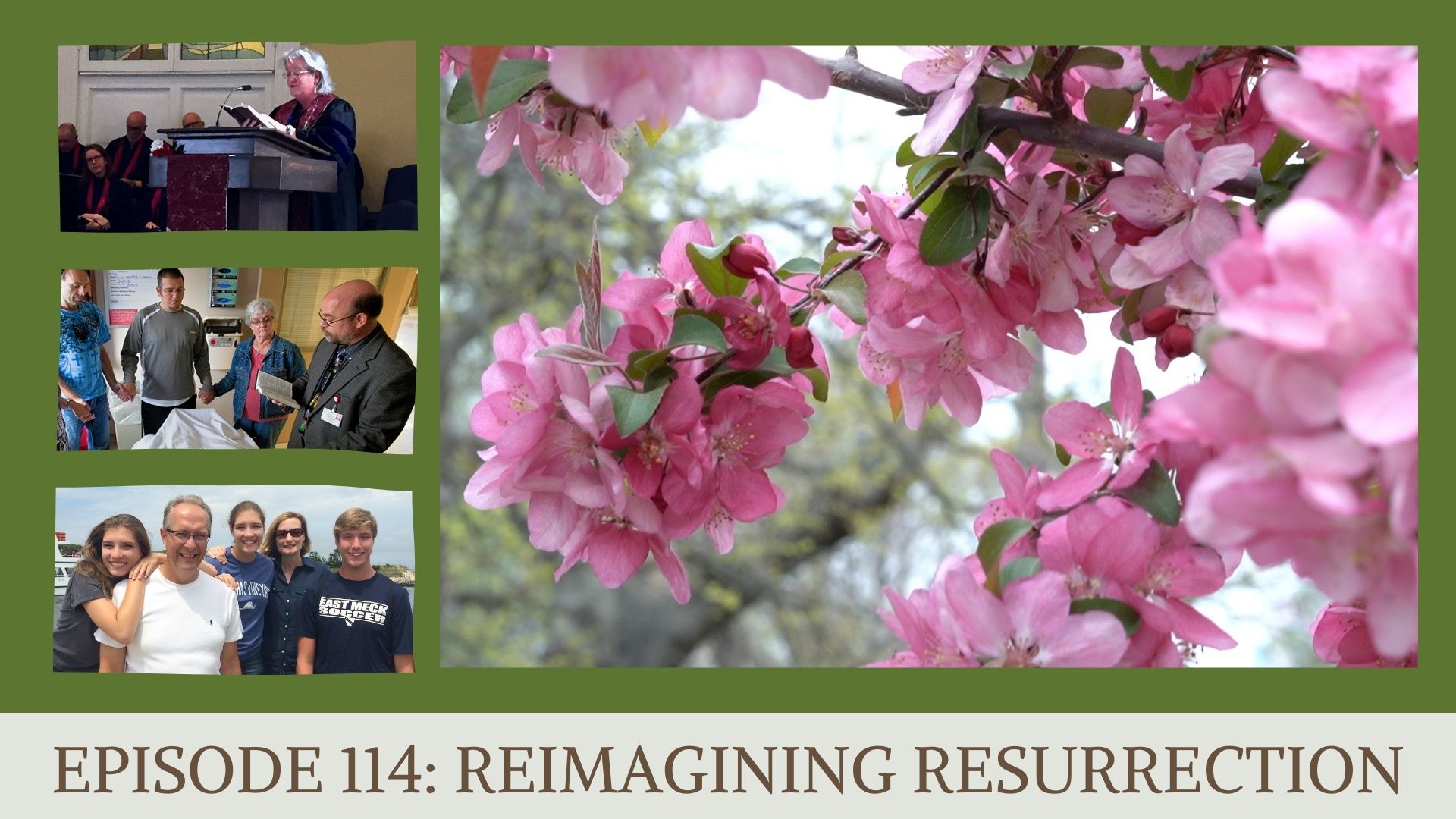Christians are reimagining resurrection. Today we meet a pastor, a chaplain, and a researcher who are asking big questions about person and meaning of Jesus. Do you live with inspiration or with tension about the life and teachings of Jesus? What is the meaning of the person of Jesus Christ? How shall we understand the death and resurrection of a first century Jewish rabbi?
And perhaps we should ask a more urgent question. Does it matter what we believe about Jesus, his teachings, his life or his death and resurrection, if somehow it does not come to bear on how we live?
What does it mean to practice resurrection?
During these longest days of summer, I hope you will use the season of light to ask yourself these and related questions. And watch this week’s featured video to see what author, poet and novelist Wendell Berry has to say about practicing resurrection.
More on Practicing Resurrection: video | blog | podcast
Learning to renew the practice of resurrection
Today I want to introduce you to some friends and colleagues in the Alliance of Baptists, my denominational home. Alliance folks are known for re-imagining belief and practice in creative and prophetic ways. For example, Alliance President Michael-Ray Matthews shared a poweereful podcast on Juneteenth. In it, he encourages us to to re-imagine prophetic resistance for the sake of honoring Black lives and ending white supremacy.
Each of our guests today is reimagining the meaning of Jesus’s life and death and resurrection. They are engaging in some fascinating re-imagination work. Through qualitative study, theological reflection and clinical practice, a movement is afoot. See how these Baptist pastors, chaplains and writers articulate a renewed sense of meaning in the Jesus events.
The latest issue of the Review & Expositor (Vol. 118: February 2021) also takes up a similar set of concerns. The issue focuses on “The death of Christ: An unveiling—again.” Contributions come from scholars of Bible, theology and ethics.
“Taking on the Cross”

My pastor and friend, Rev. Dr. Amy Mears began working as part of a team in 2019 to plan the annual gathering of the 2020 Alliance of Baptists. The team was eager to explore beliefs and practices that are emerging among progressive Baptists. The theme is “Taking on the Cross: Re-Learning the Love of God.”
Just weeks before the gathering, the global pandemic hit the brakes. The gathering was postponed. The Alliance met virtually earlier in 2021 and explored the theme, “How Then Shall We Live?” Now Amy and the planning team are working towards bringing the theme “Taking on the Cross” to life in April of 2022.
Two dozen Baptist leaders, pastors and ministers are contributing to a companion book by the same title. So as Amy says, “It’s going to take a village” to complete the project. Tim Moore, John Ballenger, Ben Sanders, and Graham Walker are also working as editors. I asked Amy to tell us more.
What will the new book do?
AM: Theories of atonement and how those theories affect our ethics, our worship, our self-understanding, and our spirituality will be the topic for worship, workshops, and other gatherings of the meeting. Registrants will receive a companion book by the same title. Each of the 23 chapters is written by an Alliance-related practitioner of faith who wrestles with historical theologies and their application from a wide range of life situations.
The first section of the book contains biblical and theological discussion. The second section involves the implications for worship and spiritual formation of interpretations of atonement, including resources for churches and individuals. The final section contains ministry tools relating the theme to pastoral care and justice work. It is the hope of the planners of the Alliance Gathering that this book will be a resource for congregations and individuals. “We hope it will assist them in exploring their faith commitments and the premises on which those are founded.”
“Clinical Theology” of Atonement

When I met Frank Woggon, he was the supervisor in training (SIT) in the Clinical Pastoral Education (CPE) program at Baptist East Hospital. I completed a unit of CPE while I was still in seminary in Louisville, Kentucky. Frank is now an ACPE Certified Educator and Director of Chaplaincy Service at the University of Louisville Hospital and Jewish Hospital. He is endorsed by the Alliance of Baptists.
We reconnected again recently. Frank was eager to share his excitement about a new book project. During the pandemic Frank continued to support patients and staff. Like so many chaplains during this time, he experienced the unrelenting demands that the pandemic placed on patients, families and medical staff.
Then when he reached home each evening, he wrote a few sentences or a paragraph. He told me that writing each day helped to sustain his own well-being. That writing is culminating in a book project. I asked Frank to tell us about the emerging ideas.
Tell us about your project?
FW: I am currently re-interpreting the Christian teaching about the atonement in light of shame, rather than guilt, as a primary mark of the human condition. In the history of the church, a focus on sin as guilt and disobedience generated theories of a violent atonement. And in turn, a violent atonement inspired many violent campaigns of “salvation.” In the proclamation of the church, “the Jesus story of the compassion of God” (F. Tupper) often seemed to subsist in shadow of the cross.
I know from my work that shame is much more pervasive in human experience than guilt. As a chaplain I have encountered that master emotion quite often. If sacrifice and ransom was the “saving” response to guilt, what would be a “saving” response to shame? Behavioral science research and theories about the treatment of shame provide some answers. And I am also bringing those insights into dialogue with theological perspectives in, what I call, “a clinical theology.”
What is a clinical theological method?
FW: It is “clinical” because it starts with human experience. This method of reflection also utilizes a clinical method of reflection that I have practiced for thirty years in CPE, a method that brings theology and behavioral science perspectives into dialogue about human experience in order to shape a caring practice. From psychotherapeutic theories and my own practice, I know that empathy is a major therapeutic factor in the transformation of the effects of shame. Thus, I interpret the God event in the Jesus story through a therapeutic lens of empathic attunement and construct an understanding of the empathic God that I discover in the atoning life of Jesus.
As a clinical theology, it is also a therapeutic theology. That means, it aims to have a healing effect and to shape a practice of spiritual care and an ethics that are faithful to the Jesus story of God’s empathy and compassion. I envision an empathic church that participates imaginatively in God’s saving activity, joins people in their suffering where they are, accepts others unconditionally and seeks to understand their experience in order to partner with them for healing and restoration.
Congregations Re-imagining Atonement

Rev. Tim Moore is a writer-in-residence and former pastor at Sardis Baptist Church, Charlotte, North Carolina. He is the author of Practicing Midrash: Reading the Bible’s Arguments as an Invitation to Conversation (2018, Wipf and Stock).
Tim reached out to me late in 2020 to tell me about a new research project. And it was a joy to consult with him as he planned to interview ministers and congregations. In his study, he is working to understand how theologies of atonement are changing. A summary of his findings will be presented at the 2022 to Alliance a Baptist gathering.
What is changing about the understanding of atonement?
TM: For the past half century there have been numerous theologians and biblical scholars that have seriously critiqued substitutionary atonement from various angles.
Some key texts include:
- Jorgen Moltmann, The Crucified God,
- Denny Weaver, The Nonviolent Atonement,
- Rita Nakashima Brock and Rebecca Parker, Proverbs of Ashes and Saving Paradise
- James Cone, The Cross and the Lynching Tree
In liberation theology, womanist and feminist theologies, Girardian analysis, liberal and even evangelical traditions, there are many thinkers who question the 21st-century relevance of this doctrine. Thus, I wanted to explore how understandings and practices of atonement are changing.
The academy may be the place where great minds deconstruct old beliefs and propose new concepts, but congregations revise Christian practices, and transform the faith. I am interested in how pastors, trained under these recent critiques of transactional atonement theories, are reforming worship or faith formation, if at all.
I am identifying congregations that eschew substitutionary atonement as the normative understanding for the meaning of the cross. And I am recruiting them to be part of a pilot study. Thus far, I have interviewed people in four congregations and will soon complete a review of two more churches. My hope is for this to be the beginning of a larger study on the subject.
How is the study going so far?
TM: It has been a delightful and surprising enquiry. Many in these congregations are thankful for the opportunity to share their thoughts. Some felt disconnected from the church by a ‘Jesus died for (and because of) your sins’ theology. That felt oppressive and shaming. Others spoke of being liberated by finding a church that has reimagined the meaning of resurrection beyond the belief of a literal body on the other side of a grave.
These congregations are renewing the seasons of Lent and Easter with an honest and faithful expression of our mortal existence in relationship to God. For example, they are inviting young people into the waters of baptism to claim a radical commitment to follow the way of Jesus. Congregations are also inviting people into communities that accept them as they are. They are finding community by making the Lord’s Table a place of welcome and inclusion.
Most of all, they have decided that “belonging” or “behaving” are more important to congregational life than “believing.” These congregations are covenantal, rather than creedal. And they give me hope for the future of the church.
+++++++++++
 “Practicing Resurrection” is a chapter in Pastoral Imagination: Bringing the Practice of Ministry to Life. Do you have your copy yet?
“Practicing Resurrection” is a chapter in Pastoral Imagination: Bringing the Practice of Ministry to Life. Do you have your copy yet?
Check out a sample of the Journal here. It is available exclusively in the 3MMM shop! Get your e-journal or print journal today and continue exploring questions for your practice of ministry.




